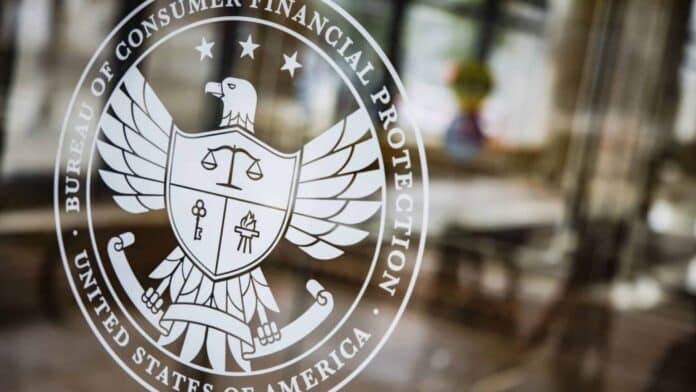Here’s Why We Should Care
By Professor Andrea J. Boyack
Lyrics from the iconic 80s movie/song Ghostbusters ask, “If there’s something weird and it don’t look good, who you gonna call?” Since 2010, when people in the United States suffered from financial scams and contractual abuse, there was someone to call: the Consumer Financial Protection Bureau, known by its acronym, the CFPB. The agency has now been shut down. Why should we care?
Congress created the CFPB in response to the 2008 foreclosure and financial crises as the first and only agency to prioritize the financial rights of hardworking American consumers. If a bank charges you an obscenely high overdraft fee, you can report it to the CFPB. If a car lender imposed a hidden prepayment penalty that jacks up the cost of your car, the CFPB can push back. What if a debt collector is calling you in the middle of the night, or a payday lender is charging you 999% interest, or your credit report contains false information about a prior debt, or you were tricked into signing up for a predatory mortgage loan? Who you gonna call?
The CFPB has been busting up financial scams to help ordinary people like you and me for the 14 years of its existence. Nearly 8 million people have lodged complaints through its Consumer Complaint Database portal. The agency has investigated millions of abusive, deceptive, and unfair consumer financial practices and has obtained $21 billion in refund payments for people who were cheated out of their money. The operating budget for the CFPB during that time was less than a third of the real, measurable financial benefits—dollars in pockets—produced by the CFPB’s efforts. The CFPB’s budget was public money used for the public good, generating a net value for American consumers of $1 billion each year.

How the CFPB Has Helped Us
Here are just some of the ways that the CFPB has helped us over the past few years:
- It capped bank overdraft fees.
- It removed references to unpaid medical debts on credit reports.
- It limited the number of times a week a collection agent can call about a debt.
- It restricted data brokers from selling our personal information.
- It made banks refund money they had obtained through deceiving their customers.
In early February, Elon Musk’s “Department of Government Efficiency” accessed CFPB offices, computer systems, and social media accounts, shutting down the agency’s homepage. Russell Vought, the newly appointed acting director of the CFPB and new head of the Office of Management and Budget, carried out the administration’s intent to erase the CFPB by halting its operation. Vought instructed all employees to cease all “supervision and examination activity.” The operating budget for the CFPB was diverted elsewhere.
This week, 23 states joined the City of Baltimore in asking a federal judge to block the administration from defunding the CFPB, claiming that the agency is essential to helping states protect their consumers. These cities and states claim that shutting down the CFPB will cause “irreparable harm.”

The Consequences of CFPB’s Shutdown
In fact, these irreparable harms are already being felt. All the consumer protection services that Congress requires the CFPB to perform have been stopped in their tracks:
- No more processing of consumer complaints (which previously amounted to about 25,000 every week).
- No more money being distributed to fraud victims from the Civil Penalty Fund (payments already ordered but not yet paid).
- Shutting down the CFPB spells a premature end of ongoing consumer rights lawsuits.
In one pending case involving an illegal “debt relief” scam, the accused scammers have already filed a motion to dismiss the case, arguing that the CFPB has become “wholly nonfunctional” and can no longer pursue the litigation.
Remember those “too big to fail” banks of the 2000s who were bailed out while they were foreclosing on people’s homes? According to the Federal Reserve Chairman’s Congressional testimony last month, getting rid of the CFPB would leave such huge, national financial institutions “essentially unregulated.”
Nor is there anyone watching over the financial activities of BigTech if the CFPB disappears. This means that if you are cheated out of money while using financial products like Zelle and GooglePay, you are on your own. Ending the CFPB also means that Musk can launch his new financial platform, XMoney, unburdened by government oversight.
No CFPB means that big banks, e-banks, and various other lenders can exploit legal loopholes, gain market share, and profit from hidden charges. As Arizona’s Attorney General Kris Mayes said, “dismantling the CFPB would be a gift to financial institutions that prey on working families, making it easier for them to hike fees, deceive borrowers, and evade oversight.”
Notwithstanding the recent outcry from consumer advocates, as of this writing, the CFPB remains defunded and its offices and homepage remain dark. Elon Musk tweeted “CFPB RIP,” declaring the agency’s death.
Why Should You Care?
If you ever have or will take out a loan, have a bank account, or sign up for some service by clicking “I accept” online or signing a form, you personally benefit from the CFPB’s role as market watchdog. As long as there was the CFPB, if you were cheated out of money by a company’s unfair terms or deceptive behavior, you didn’t need to find, hire, and pay for a lawyer to enforce your legal rights all on your own. You had someone to call, an entity that existed in order to fight for American consumers.
Who we gonna call if it is gone?





